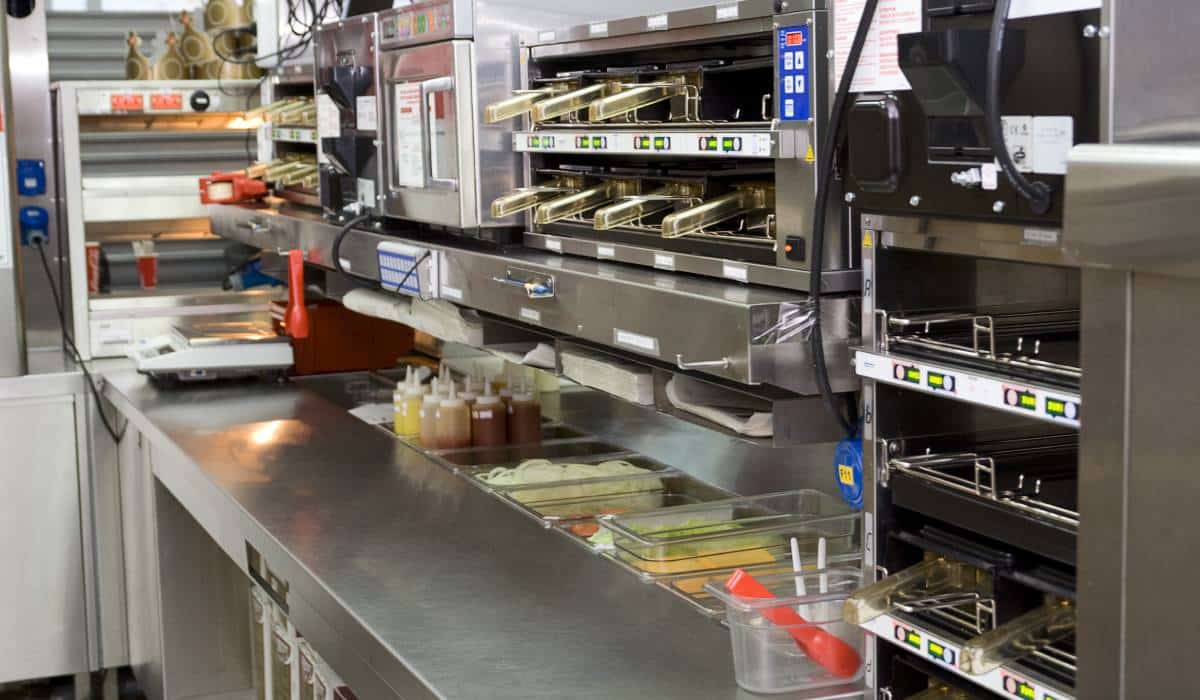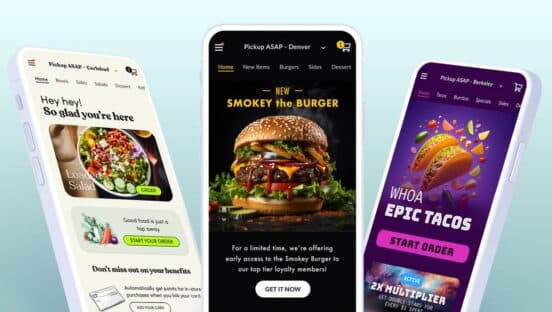One of the historic barriers to breaking into the restaurant industry is securing capital to get off the ground. The cost of equipment, leasing or purchasing a building, and properly staffing a brick-and-mortar fast casual typically runs between $250,000–$400,000, according to Forbes.
At its base level, this is what’s fueled much of the ghost kitchen movement, says John Meyer, CEO of Ghost Financial. It provides a starting point for operators who don’t have the financial safety net larger brands have access to.
“Ghost kitchens are revolutionary in that they have lowered the barrier to entry for foodies with a dream by taking the cost and timeline down to start a restaurant from $500,000 and an entire year, to $25,000 and 30 days,” he says.
Ghost Financial is a fintech startup that provides loans, insurance, payroll, and other financial products to ghost kitchen operators. Meyer started the company after venturing into the expanding arena himself.
In late 2020, Meyer, who is based in Austin, Texas, launched low-carb ghost kitchen concept Keto Kitchen as a “side project.” Within 60 days, the business was profitable, which led him to seek out a loan to expand.
After striking out at several major banks, Meyer says he realized there was a need for financial services dedicated to the ghost kitchen space.
“I walked into a big bank and asked for an expansion loan and the bank manager literally asked me what a ghost kitchen was,” he says. “It’s very clear the traditional banking sector has no idea what is going on as it relates to the evolution happening in this trillion-dollar food space.”
“I saw how tight margins were and how expensive it is to run a successful operation,” Meyer adds. “I dedicated my time to figuring out how to make restaurant operators and owners more money.”
Ghost Financial’s services were designed with operators in mind. One of the insights Meyer gleaned from his work was how much money was spent on inventory without reaping any benefits from massive, monthly recurring expenses.
The end idea being the Ghost Financial charge card, which offers 1 percent cash back for inventory expenses and has the potential to bring in thousands of dollars in returns, Meyer says. He estimates it could provide as much as a 10 percent bump to profit margins.
“Anyone can start using this card as long as we can verify that you have a legitimate operation, he says. “The card requires no credit check and has zero interest, meaning you can apply, get approved, and start using it to get your business off the ground in a fraction of the time it would usually take.”
The company also supplies ghost kitchen insurance, loans for expansion, and a payroll system tailored to these spaces.
Carl Orsbourn, co-author of Delivering The Digital Restaurant, says all of these products are helpful for independent operators, who have different needs than established brands trying to capitalize on the ghost kitchen boom. After spending years researching digitally based restaurants for his book, he says there are several viable ghost models, but it really comes down to individual needs.
“Having an entity like Ghost Financial is helpful because they can make sure they [independent operators] don’t waste time, energy, and resources in the wrong spaces,” he says.
That’s precisely what Meyer is looking to help operators avoid. He says corporate brands have huge legal and financial teams that give them a leg-up when it comes time to open up shop or expand, whereas those services are simply not available to smaller operations.
“We want to see these folks succeed,” says Meyer, who estimates current ghost kitchen failure rates are roughly 35 percent.
Orsbourn believes independent ghost kitchen operators can succeed in a space where larger brands and chains have started to flex their muscle.
“It’s really difficult for independents to win in this particular environment because they don’t have the means to scale or the resources that an enterprise brand might,” Orsbourn says. “But I do think independents have a chance of success, I really do. I know that because I know independents that are doing really well in this environment.”
To help educate operators about the dos and don’ts of the ghost kitchen space, Meyer and Ghost Financial launched online platform GhostU.
“I want to ensure that with proper education, the industry sees failure rates drop to 5 percent or lower,” Meyer says.
The GhostU program will consist of at least 12 MasterClass-style videos, which will cost $1,000. They’ll pair with step-by-step worksheets and three months of access to Ghost Financial’s Ghost Kitchen Community, a forum where owners can share their experiences and access interactive workshops.
Topics covered will include how to maximize profitability, build a powerful team, secure financing and investors, and get the most out of delivery apps.
Additionally, Ghost Financial struck a partnership with Maker Kitchens, which operates commercial ghost kitchen facilities in major metros across the country. The partnership will see Ghost Financial become the preferred insurance and loan partner for Maker’s 300-plus tenants.
Meyer says the deal with Maker is hopefully the first of many with ghost kitchen real estate firms. Like Meyer, Maker wants to maximize profitability for ghost kitchen operators. Tenants under the Maker umbrella will have access to Ghost Financial’s margin-boosting products, and Ghost Financial will be able to reach more ghost operators.
“There are some huge players doing ghost kitchen facilities, but then you’ve got more mid-sized companies, like Maker, that are finally bringing some much needed competition to the market with much more attractive pricing and flexible contracts,” Meyer says. “Maker approaches the ghost kitchen space with an empathy-first lens and combines that with a fair business model.”







